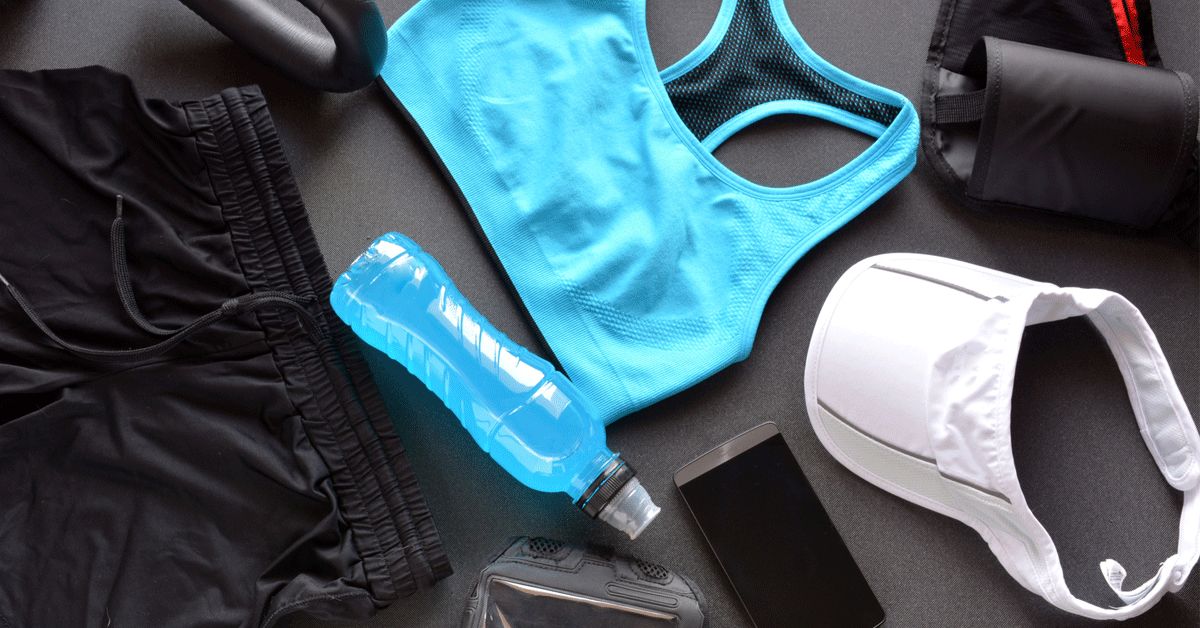
Do you suffer from gymtimidation?
Are you worried you’ll look terrible in Lycra and a tight tee? Don’t know what the machines in the gym are for? Embarrassed about your body shape? Don’t worry, you’re not alone. Dr Matser explains why…
Gulf News | Friday Magazine | Colin Drury 22 Apr 2016
For Edita Koeman, the final straw came on the bench press. At her local gym in Motor City, Dubai, she was finishing up her twice-weekly session when a more regular member strolled over.
‘She looked at what I’d been lifting and kind of smirked,’ recalls the 32-year-old restaurant manager. ‘Then she said, smiling like it was a compliment, “You’ve got such a meaty figure – I bet with a bit more training you could lift double that”.
‘I didn’t know what to say. I was like, “Thanks”. But I’m walking away thinking, “I’ve just been called fat”.
‘I was devastated. I mean, I know I have curves but it felt so mean and it just played on my mind. It made me feel like an imposter for being at the gym.’
Edita, who is originally from the Netherlands, never went back. And it turns out she is not alone.
People across the UAE, evidence suggests, are increasingly turning to alternative fitness solutions because of a phenomenon known as ‘gymtimidation’. Thousands of us are growing ever more reluctant to attend gyms because we feel daunted by them: by the other clientele, by the staff, by the equipment and even by the clothes we are expected to wear.
‘Gymtimidation is absolutely real,’ says Dr Erik Matser, a clinical neuropsychologist at the German Neuroscience Center in Dubai Healthcare City.
‘It is a sickness built on low self-esteem and created by the constant bombardment of unrealistic images of the perceived ideal body in media and advertising. We are led to believe that being super-slim and super-toned is the normal and, unless we are like that – and 99.9 per cent of the population isn’t – we can feel that we don’t belong in the gym.
‘It is the same sort of culture – normalising a look that people cannot hope to attain – as that which makes young people anorexic.’

Stats on gymtimidation aren’t easy to come by. Few gyms, after all, will admit that membership is falling for fear of the negative connotations.
Yet if you recognise the diagnosis in yourself, there’s no doubt you’re not alone.
A 2014 survey in a British health magazine – one of the few conducted on the issue – found 47 per cent of women avoid the gym because they feel out of place; while in 2015 the pop star (and fitness fanatic) Ellie Goulding went on record as saying she regularly felt uncomfortable while working out: ‘guys stop what they’re doing and look at you with a smug smile that bums me out so much.’
Here in the UAE, alternative ways of getting fit are booming – and many believe that’s at the expense of the gym.
The Dubai Women’s Football Association says it has more players signed up than ever in its history; cycling is on the up with miles of routes, tracks and lanes currently being laid across our cities; tennis clubs are reporting increasing members; and anyone who ever visits Dubai Marina won’t need telling that jogging is on the rise.
And yet, despite all the above, the gym remains perhaps the most effective way of getting fit quick. Here in the UAE, it is also one of the cheapest and most convenient with many of us living in buildings – or at least neighbourhoods – with their own facilities.
The fact is, if we choose to go to the gym, we shouldn’t be intimidated by anyone or anything.
Which is why, as the summer’s searing temperatures start once more to make outdoor exercise largely off limits, Friday speaks to personal trainers and sports psychologists to bring you expert advice in ways to conquer your gymtimidation.
See you on the rowing machine…
The problem: You don’t feel fit, slim or toned enough compared with everyone else there
Saying you won’t go to the gym because you feel you look too unfit is, rationally, like saying you won’t go to a restaurant because you feel too hungry. Yet concern about body image is the one thing that puts many of us off.
‘I think everyone feels like this when they start – no matter what your shape, size or sex,’ says Ricky Mestre, head personal trainer for Target Fitness in Al Safa. ‘I know I did. I felt people were looking and laughing at me, and it made me want to quit many times.’
The solution:
First things first: remember people go to the gym to get fit, not because they already are.
Everyone there – no matter what they look like now – had a body shape they wanted to change at some point. Most still do, or they wouldn’t be there.
Second: remember pretty much no one is judging you. They won’t even be looking at you. And those rare strange creatures who do? Does their opinion really matter? If The Terminator who spends his life sat on the peck deck isn’t impressed by the fact your arms don’t resemble a couple of golf balls in a sock, do you actually care?
Dr Matser, who has worked with sports stars from Chelsea FC to the Dutch Olympic swimming team
‘The problem,’ says Dr Matser, who has worked with sports stars from Chelsea FC to the Dutch Olympic swimming team, ‘is that sports marketing constantly shows idealised body shapes – slim, svelte, toned, six packs – which are simply not anchored in reality.
‘What we must do, as individuals, is remember this is not real, and we should not allow it to impact our own self-esteem. Human bodies are as unique as fingerprints. They come in all different shapes and sizes. As someone who has worked with some of the world’s best athletes, I assure you there is no one anywhere – let alone in your gym – with a perfect body. It’s a myth.’
The problem: You’re unsure how to use the equipment properly
Gym equipment, let’s be honest, looks not dissimilar to something you might see in a torture chamber (and, once you’re using it, often feels like it too).
It’s not self-explanatory. It’s rarely easy-to-use. And when you’re dealing with weights that go into the hundreds of kilograms, it can be pretty unforgiving if you make a mistake.
Consider this: 20 per cent of regular gym-goers admit they don’t understand all the gear in the average weights room (that’s according to that British survey quoted above), so how on earth is a newcomer supposed to get to grips with it?
The solution:
Quite simple: ask. ‘If you don’t understand something, there’s a tendency for people to blame themselves or think they are being stupid,’ says Dr Matser. ‘And that just isn’t true. No one is born an expert. You must do what you would do in every other walk of life if you’re unsure: ask and learn.’
Ricky agrees – and he points out it’s your financial right too.
‘Every gym has instructors and helping you is what they’re paid to do,’ he says. ‘If you don’t use them, you’re not getting your money’s worth from your membership.’

The problem: Gym clothing is unflattering
Lycra, stretch pants, vest tops? All worn while sweating and slowly turning a shade of beetroot from exertion?
This is not a look most people can pull off.
Yet many try. Going to the gym and seeing others in sportswear that seems to be straight from the Olympic village can feel seriously demoralising – especially when you’ve rocked up in a pair of joggers and sneakers that are older than the new instructor.
The solution:
The gym isn’t a catwalk show. You’re not there to impress with your style. You’re there for a workout.
So put on something safe, simple and comfy, and ignore the ‘peer pressure’ to look trendy.
Gym clothing, says American dietician and fitness expert Alejandro Chaban in his celebrated Yes You Can! diet plan blog, ‘is about having the right underwear, pants, shoes and socks. All that’s important is you feel comfortable, confident and avoid injuries.’
And if you need inspiration, just look at Rocky. He pretty much trained in his underpants and a cotton vest, and he still became heavyweight champion of the world.
The problem: It feels too competitive
If you’re not pressing 80kg then what, pray tell, were you thinking by darkening the door of the gym?
This is what many of us feel will be asked once inside the weights room. Here, so our fears go, men will be checking out what you’re pumping, women will be sneaking glances at your calves, and everyone will be trying to outdo one another with shows of strength, speed and stamina. And you can fall into that trap too. ‘Looking at the person next to you and wanting to compete with her is a very bad idea,’ says Alejandro. ‘The only thing you’re going to do with this is feel bad if you can’t keep up.’
The solution:
Competition might be all well and good if you’re at Rio 2016. But this isn’t that. It’s the weights room on the 38th floor. Most people are here in their spare time after work. There’s no need to compare.
‘Being social at the gym is a good thing,’ says Dr Matser. ‘You can learn off others and make friends. But if there’s a competitive edge that you don’t like, zone out. You don’t need to get involved. Listen to music. Focus on yourself. Enjoy the exercise.’
The problem: Trainers lack patience
In an ideal world, your average gym instructor would be a zen-like cross between Yoda, Mr Miyagi and White Goodman from Dodgeball: A true underdog story – part mentor, part friend, part beverage-holder.
In reality, a regular complaint from those suffering gymtimidation is that staff are all too often off-putting. They can lack patience and interest with beginners, and favour the already-buff.
‘I never used an instructor,’ says Edita, ‘but one thing I did notice is that a lot of the time they were too busy working on their own biceps to bother telling me how to improve mine.’
The solution:
The idea of unfriendly and unconcerned gym staff is actually, says Ricky, mainly a myth.
‘Instructors and personal trainers want to see you succeed,’ he says. ‘It often can become a personal friendship. My advice would be to trust in them by working hard and having fun.’
And if you do come across an instructor you don’t click with? Simply look for another. Gyms aren’t staffed by just one person. There should always be a second person around. Or, indeed, another gym to go to should it come to that.
To use the earlier metaphor, stopping going to the gym because you don’t like a trainer is like stopping eating out because you don’t like a waiter at a particular restaurant.
The problem: You just don’t really like the gym
No reason – just not your thing.
The solution:
Don’t go. We’ve already alluded to it and it’s absolutely true: there are a million other ways to stay fit in a country like the UAE – even at the height of summer.
‘Experiment,’ says Dr Matser. ‘See what you like, see what you’re good at, and see what works for you. If nothing else, you should have fun trying out new things.’
The article was originally published by Gulf News | Friday Magazine | Colin Drury 22 Apr 2016

